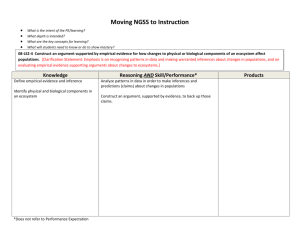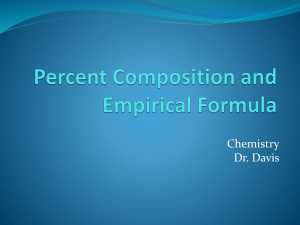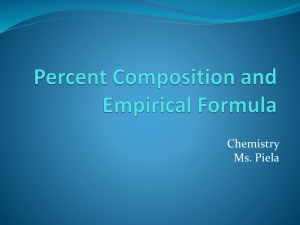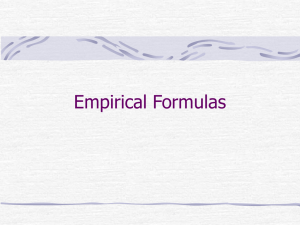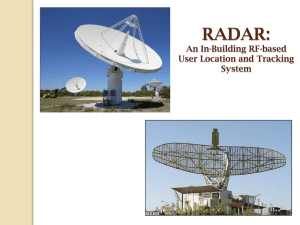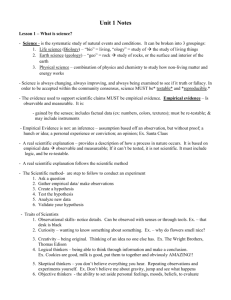Common Course Assessment
advertisement
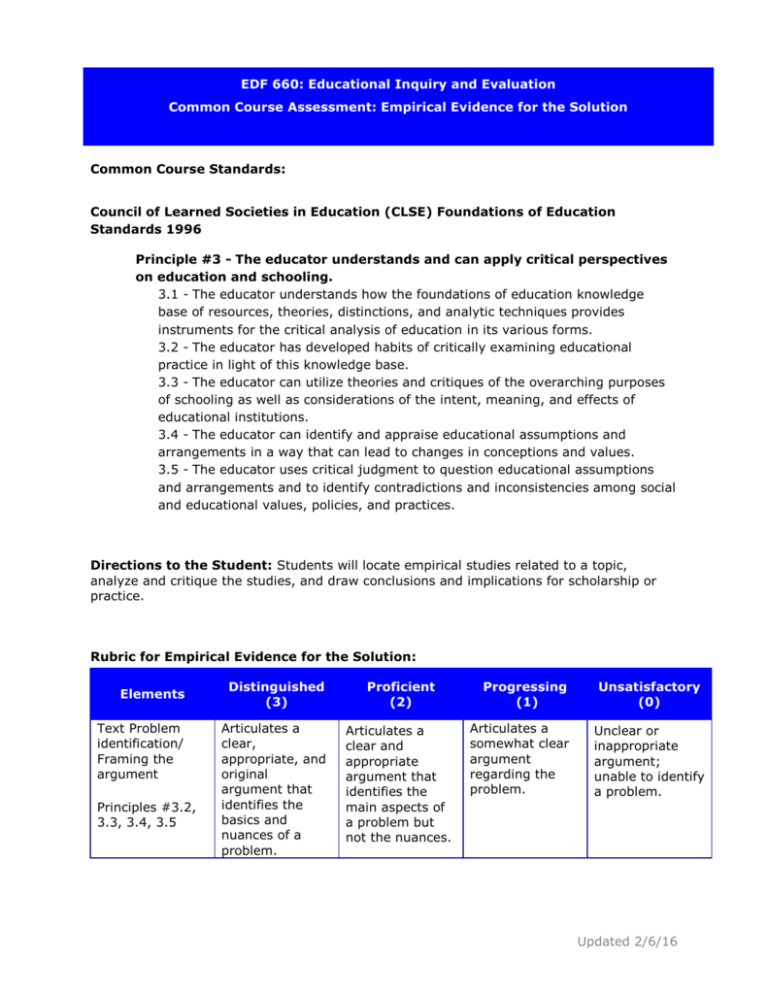
EDF 660: Educational Inquiry and Evaluation Common Course Assessment: Empirical Evidence for the Solution Common Course Standards: Council of Learned Societies in Education (CLSE) Foundations of Education Standards 1996 Principle #3 - The educator understands and can apply critical perspectives on education and schooling. 3.1 - The educator understands how the foundations of education knowledge base of resources, theories, distinctions, and analytic techniques provides instruments for the critical analysis of education in its various forms. 3.2 - The educator has developed habits of critically examining educational practice in light of this knowledge base. 3.3 - The educator can utilize theories and critiques of the overarching purposes of schooling as well as considerations of the intent, meaning, and effects of educational institutions. 3.4 - The educator can identify and appraise educational assumptions and arrangements in a way that can lead to changes in conceptions and values. 3.5 - The educator uses critical judgment to question educational assumptions and arrangements and to identify contradictions and inconsistencies among social and educational values, policies, and practices. Directions to the Student: Students will locate empirical studies related to a topic, analyze and critique the studies, and draw conclusions and implications for scholarship or practice. Rubric for Empirical Evidence for the Solution: Elements Text Problem identification/ Framing the argument Principles #3.2, 3.3, 3.4, 3.5 Distinguished (3) Proficient (2) Articulates a clear, appropriate, and original argument that identifies the basics and nuances of a problem. Articulates a clear and appropriate argument that identifies the main aspects of a problem but not the nuances. Progressing (1) Articulates a somewhat clear argument regarding the problem. Unsatisfactory (0) Unclear or inappropriate argument; unable to identify a problem. Updated 2/6/16 Identification of relevant research Principle # 3.1 Analysis and Evaluation Principles #3.1, 3.2, 3.3, 3.4, 3.5 Conclusion and Implications Principles #3.1, 3.2, 3.3, 3.4, 3.5 Identifies and selects empirical studies that are appropriate and relevant. Identifies some empirical studies that are appropriate; some selections are tangentially relevant. Identifies some empirical studies, most are tangentially relevant. Unable to identify relevant empirical research to support work. Makes insightful use of course concepts to analyze and critique empirical studies. Accurately uses course concepts to analyze empirical studies. Uses some course concepts to analyze empirical studies. Cannot identify areas of inconsistency in empirical studies. Effectively synthesizes multiple sources; accurately interprets evidence to draw well- supported implications for scholarship or practice. Makes reasonable conclusions; shows substantial capacity to interpret evidence to draw implications for scholarship or practice. Effectively synthesizes multiple sources; accurately interprets evidence to draw well- supported implications for scholarship or practice. Makes reasonable conclusions; shows substantial capacity to interpret evidence to draw implications for scholarship or practice. Updated 2/6/16
